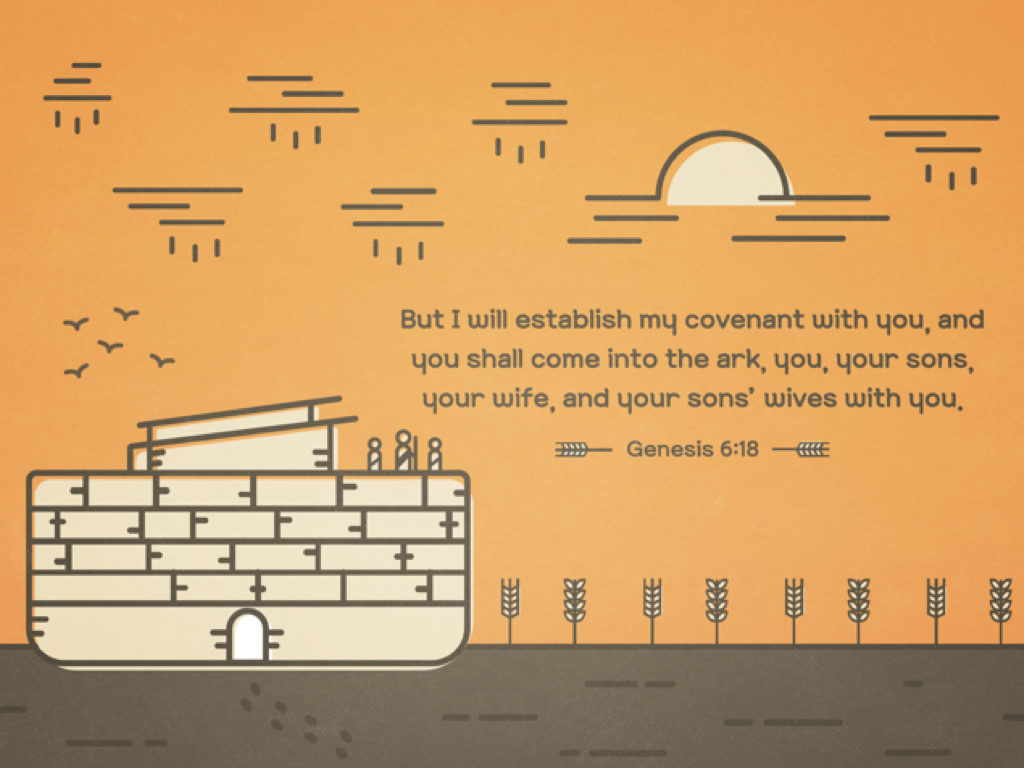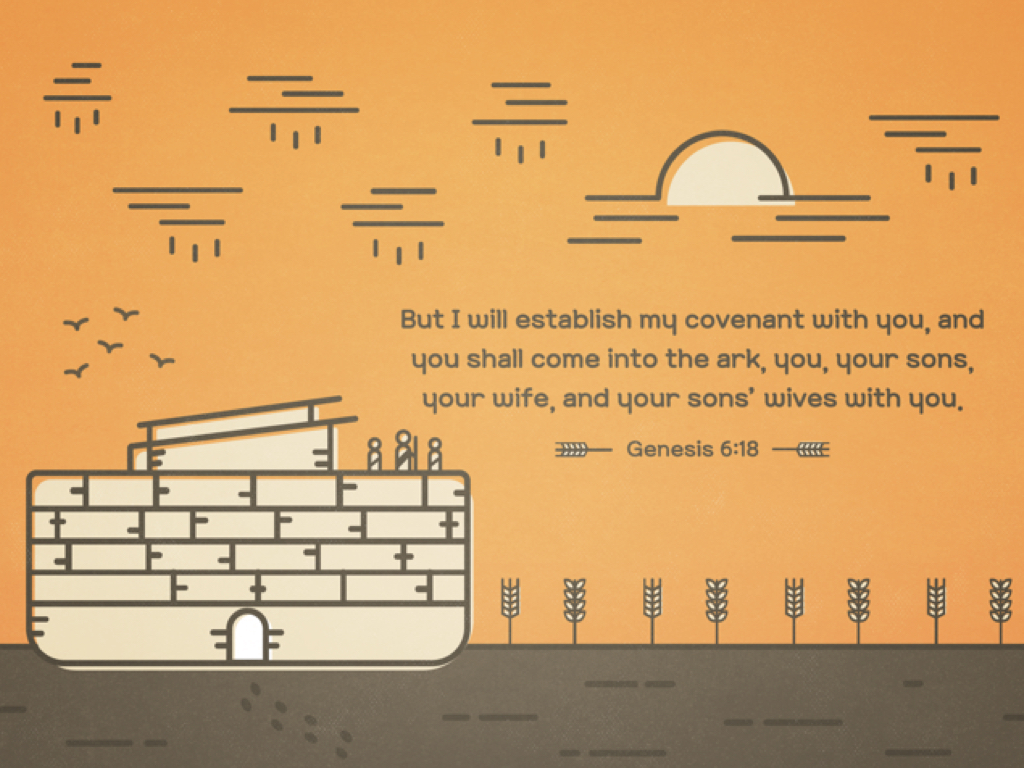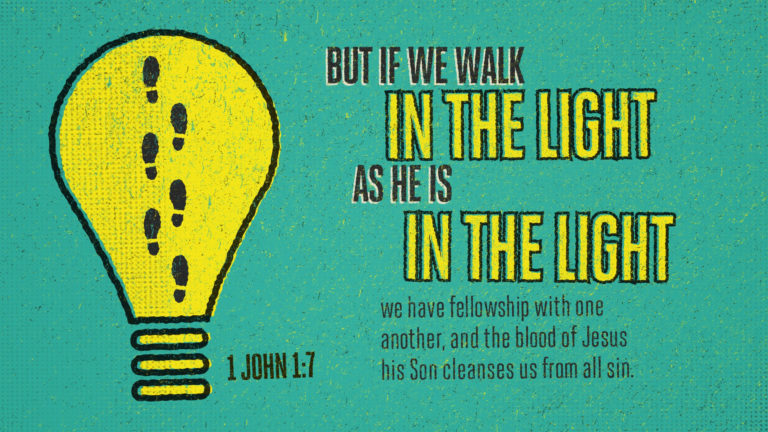Pictures of Divine Judgment: The Flood (part 1)

| BY SEAN CAVENDER |
The book of Genesis is incredible and fascinating. It tells the beginning of the world and God’s interactions with people. It is a book that shows the beginning thread of our hope in Jesus Christ to redeem us from sin. However, the book of Genesis also reveals God’s treatment of those who reject Him and refuse to do His will. In the story of beginnings, there are at least two stories that provide indications of how things will ultimately end. Those two events are the flood and the destruction of Sodom and Gomorrah. In the next two weeks, we will consider these two episodes from the book of Genesis and what the Bible says about our need to be ready for the day of the Lord.
THE FLOOD
Even though God’s creation started as “very good” (Genesis 1:31), sin quickly brought corruption to the earth. God expelled Adam and Eve from the garden in Eden. Cain murdered his brother Abel and was left to become a vagrant and wanderer on the earth (Genesis 4:12). One of Cain’s descendants, Lamech, became the first known polygamist and a serial killer (Genesis 4:19, 23-24). Violence and wickedness quickly grew on the earth to such a point that “every intent of the thoughts of his [man’s] heart was only evil continually” (Genesis 6:5). God regretted creating man, and He determined that He would destroy His creation because of the violence, wickedness, and corruption (Genesis 6:11-13). Thus, God sent a massive, global flood that killed everyone and everything. The fountains of the deep oceans were open, and the waters from the sky were released (Genesis 7:11-24). The only survivors were Noah and his family — eight souls who were on the ark.
We learn that God was grieved in his heart because of the wickedness upon the earth (Genesis 6:6). It’s interesting to consider how God could have responded to sin in the world. God could have disengaged and given up on His creation. Yet, He did not do that; he saw a righteous man and decided to save him and his family. Or God could have gotten angry and decided to start all over. There is no way to comprehend all of the emotions God may have felt. Nevertheless, the first description of God’s response to the wickedness on the earth is in terms of grief. The Creator is not just angered by sin; He is genuinely sorrowed because of evil. Grief is a strong emotion that many experience after the death of a close family member or friend. Grief is the emotional response to loss and tragedy. And that is how God responds when we violate His commands. The apostle Paul told the saints in Ephesus not to grieve the Holy Spirit through their mistreatment of other people and participation in sinful activities (Ephesians 4:30-32).
The New Testament warns about the day of the Lord and how God will again judge the world. And comparisons are often made to the days of Noah and the flood. Jesus says that there will not be any change in people’s behavior before the day of judgment. People will continue to act as they always have, just as they did in the days of Noah (Matthew 24:37-39). The apostle Peter plainly states that God will judge the world again, just as He destroyed the world with water (2 Peter 3:6-7). Peter describes how God will destroy the world, and everything in it, with fire. Nothing is going to be left.
Yet, God is patient and long-suffering with us. God does not want any person to perish (2 Peter 3:9). Even amid peril, destruction, and divine judgment against sin, Noah found grace in the eyes of the Lord (Genesis 6:8). The apostle Peter understood that there is also a message of grace and salvation found in the flood story. That is why he, in 1 Peter 3:20-22, argued that Noah’s salvation in the ark was a type, or a foreshadowing, of what God has done through Jesus Christ. Because of God’s patience and long-suffering, Noah was able to build the ark that would save him. The water that brought destruction was also what bore the ark. Likewise, we are saved when we are baptized into Jesus the Christ, who was raised from the dead (1 Peter 3:21).
When we read the story of the flood in Genesis 6-9, we need to take seriously the warning that God will judge and destroy this world. The flood serves as a picture of the coming day of judgment. While the flood was an expression of God’s judgment against sin, there is also salvation for those who find grace from the Lord. The ultimate expression of God’s grace is found in Jesus Christ and His resurrection. We must be united with the resurrected Jesus in baptism to be saved by God’s grace (1 Peter 3:21).


